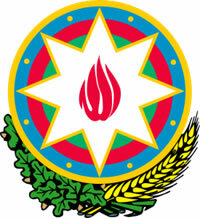Economic relations between Brazil and African countries have increased since the end of the century XX, a fact that can be analyzed as one more among many occurrences inserted in the phenomenon of globalization. We must remember that Africa has 55 countries, and it is evident that when we talk about relations Brazil-Africa economic factors do not specifically mean that Brazil is present throughout. African territory.
Currently, the BRICS, a group corresponding to the main emerging countries, are increasing their trade relations with Africa. Since 2011, South Africa has joined the BRICS, which can be seen much more as a strategy of expanding relations between BRICS and Africa than the recognition of economic potential South African. Regardless of the approach to the issue, China and India are strongly present in several African countries, followed by Russia and Brazil.
Chinese economic growth found in Africa something well known to Europeans, who in the 19th century divided the African continent according to its interests in the process known as neocolonialism: its potential Natural. China is present in 50 African countries, and its investments are concentrated in sectors such as mining, energy and infrastructure. Regarding direct productive investments, Brazil has a more modest – but still growing – role in Africa, especially Angola, Mozambique, and South Africa.
As in the Chinese case, the performance of Brazilian companies in African countries is also related to sectors such as energy, minerals and civil construction, heated sectors in Brazil and other emerging nations, or in underdeveloped countries that are undergoing some type of structural modernization and economic. Brazilian corporations end up exercising control in several production chains in African countries, mainly because many of these countries they do not have companies that exercise any type of competition and also because of the lack of regulatory policies or institutions in the countries in question.
Sometimes, it is up to the countries themselves to offer advantageous conditions for Brazilian investments. In Mozambique, a country that went through a socialist experience until the end of the 1980s, land ownership still belongs to the State, the government attracted agribusiness companies to produce products such as soy, corn and sugar cane, which according to the Mozambican authorities have the knowledge to carry out agriculture in the Savannah areas, which are very similar to the Cerrado Brazilian. The only established requirement was to allocate 90% of jobs to the local workforce. An important question about this imposition and the real advantages for the local population: what is the job generation power for mechanized agriculture?
Do not stop now... There's more after the advertising ;)
The sum of these relations between Africa and Brazil serves to reflect: would not our country be exercising another type of imperialism, exploiting poor African nations that want to grow economically and any cost? The same cycle observed in Brazilian territory during the 1950s, 1960s and 1970s seems to take over the economic reality of several African countries. Governments that liberalize their rules and offer benefits to international capital in exchange for jobs, not bothering to promote massive investments in the generation of technology and knowledge dissemination, or much less taking into account the consequences for the environment and society of an economic occupation unrestrained.
Africa and Brazil share the same history of human and natural losses due to their interdependent relationship with developed nations. It is important that their political strategies be strengthened in order to face the confrontations they have in common, such as the eradication of poverty, recovery of degraded areas, improvements in basic sanitation, among many others. Economic growth is just one of the components to achieving all these goals, and it cannot be the only bet to promote socioeconomic development.
Julio César Lázaro da Silva
Brazil School Collaborator
Graduated in Geography from Universidade Estadual Paulista - UNESP
Master in Human Geography from Universidade Estadual Paulista - UNESP
Would you like to reference this text in a school or academic work? Look:
SILVA, Julius César Lázaro da. "The current relations established between Africa and Brazil"; Brazil School. Available in: https://brasilescola.uol.com.br/geografia/as-relacoes-atuais-estabelecidas-entre-Africa-brasil.htm. Accessed on June 29, 2021.


